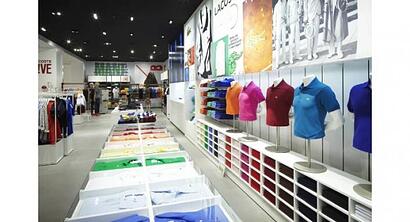From Forbes.com

Reports of the retail’s death have been greatly exaggerated. Online shopping is certainly on the rise, but the role of the store is is more important than ever.
First, the store and its associates are the key differentiators in a very competitive market. Most websites look the same, and the only true differentiator online is price. A retail business based only on the lowest price, isn’t much of a business.
Not even Amazon relies solely on price. The company that introduced the American public to showrooming is working hard to differentiate itself with faster delivery, membership programs and even original entertainment content. Amazon may be the low-price leader in most situations, but creating a unique shopping environment, as nontraditional as it is, seems to be the goal.
Physical stores have gotten stale and retailers have begun to address this neglect in earnest. Walmart executives have vowed to make improving the in-store experience a priority. Target has already taken much needed steps to create a better store. Macy’s is remodeling (although it remains to be seen how much what is happening at the Herald Square flagship will be rolled out nationally). Even grocery stores are undergoing a resurgence as Whole Foods expands and Roundy’s presses ahead with its Mariano’s format.
But the physical store is rising in importance thanks to an unlikely source: online shopping.
National chains are eager to provide shoppers with the most popular online features and currently that includes the ability to buy online and pick up in the store. To facilitate this, retailers are using the stores as fulfillment centers.
Retail IT technology now lets shoppers access store inventory and choose a location where an item is in stock. And it lets them order or even reserve those items, pay online and pick up at a designated location later that day.
All this inventory integration makes the physical stores far more important as part of the retailer’s supply chain. Each store now functions as a small distribution center. Store associates do double duty to pick and pack orders and in some cases, these orders are to be shipped directly to the customer as retailers try to reduce shipping costs as more offer that service for free.
Using the store for order fulfillment is even being credited for helping retailers weather this winter’s heavy storms, but using the nearly empty locations to pitch in and pack the upsurge of online orders from house-bound shoppers.
Stores do matter, now more than ever.
For original article, click here.